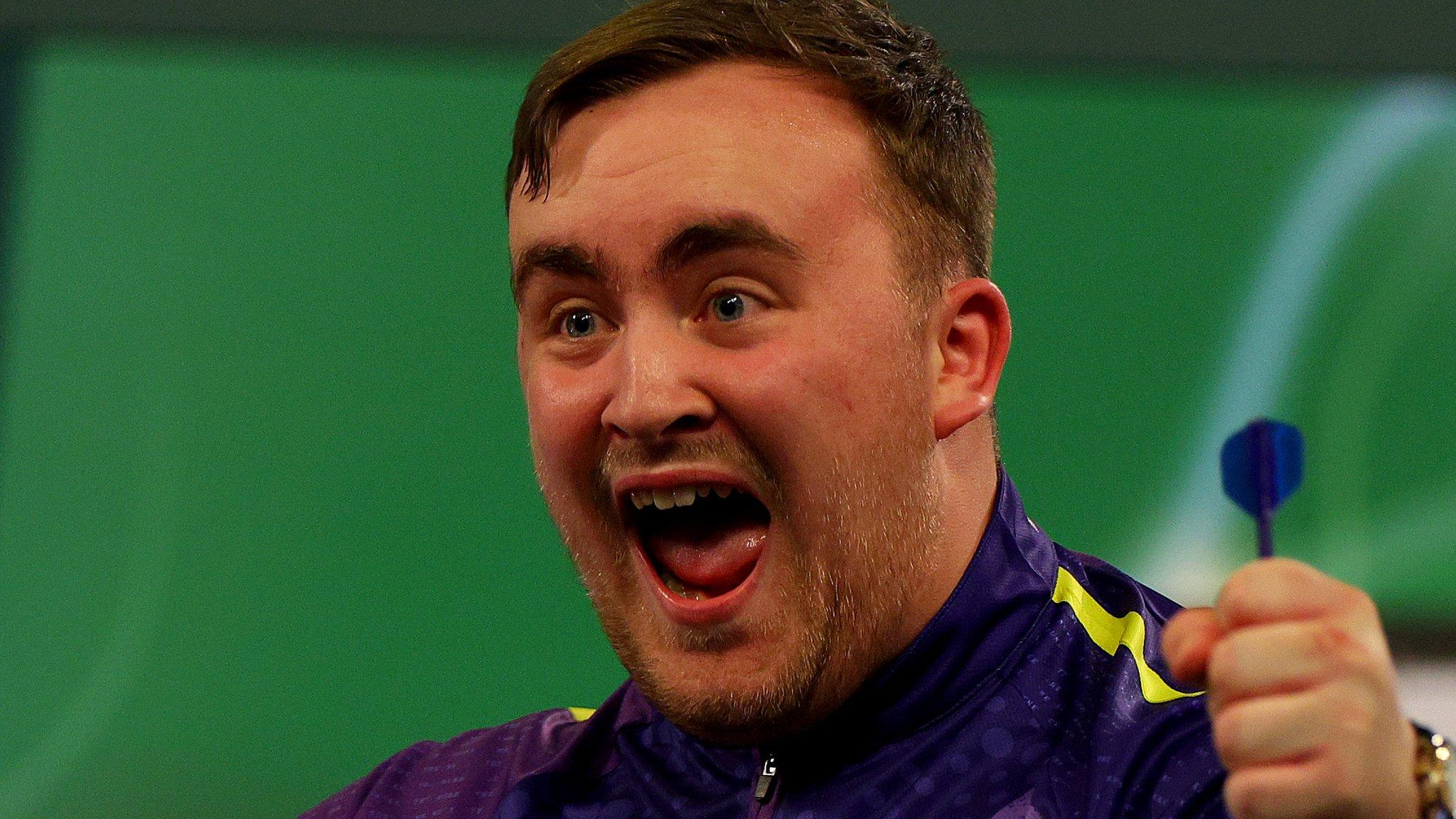Luke Littler: A guide to watching the PDC World Darts Final
- Published
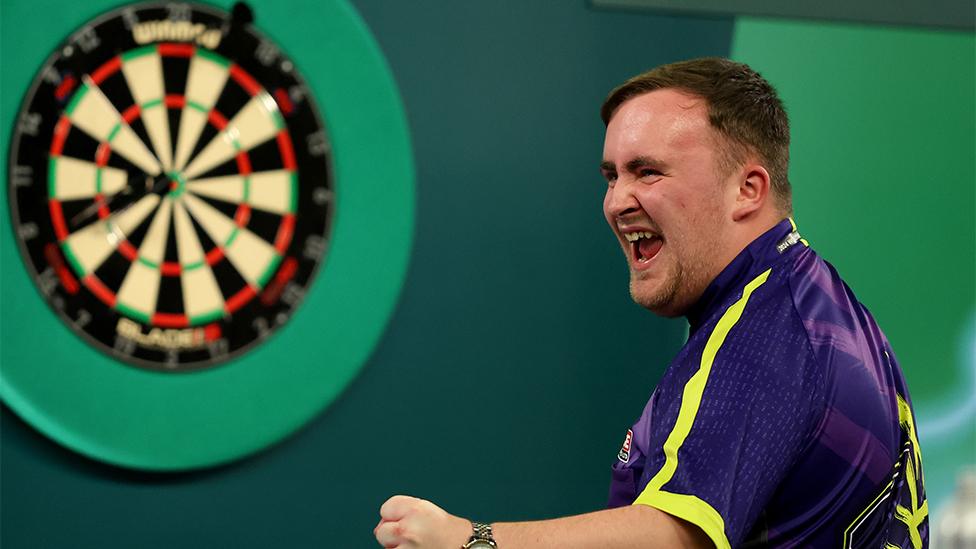
Luke Littler is the youngest player to ever reach the final of the World Darts Championship
Game on.
It's not every year the final of the PDC World Darts Championship becomes such a talked-about moment outside of the sport.
But 16-year-old British sensation Luke Littler has taken darts and UK social media by storm, with a fairytale run which has seen him become the youngest finalist in the tournament's history.
You might be one of those planning to watch him take on world number one Luke Humphries in the final and seeing what all the fuss is about for the first time.
So if you don't know your bed from your bail-out, your bust from a champagne finish or your leg from a set - fear not, we've got you covered.
The maths
Let's start with the basics, with a little help from darts TikToker Ollie Howard.
"Effectively, it's two players, three darts each, and the first person to achieve 501 points will win what we call a leg," the 26-year-old tells BBC Newsbeat.
If you follow tennis, "a leg" is similar to what people would call "a game".
The catch? Players count down and need to finish on exactly zero.
No overshooting (known as a bust) is allowed and they need to finish on a "double" - an even-numbered score.
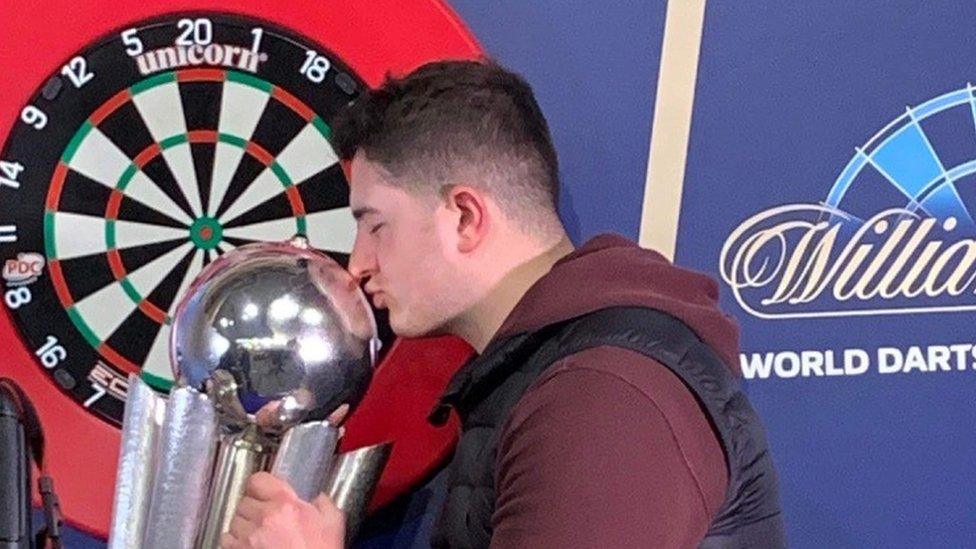
Ollie says he hopes his videos on TikTok are encouraging more people to take up darts
That's a lot of quick maths for players who need to rapidly work out how to add up to their target score.
"When I first started, counting wasn't one of my strongest points," says Ollie, whose videos taking on complicated darts challenges have clocked up more than a million views.
"But after playing for a while you do become very good quite quickly."
How many sets are there?
Not all competitions are the same, but for the final of the World Darts Championship, it's first to win seven sets.
You win a set by being the first to win three legs.
Importantly, the deciding set must be won by a margin of at least two legs because there cannot be a tie. Someone must win.
The dartboard
Nothing is possible without the circular board - and the one that's used in professional darts is the same as the one in your local pub.
If you're wondering how far away the players will be standing, it's a precise 236.9cm from the board - and the line they stand behind is known as the oche.
Each of the 20 segments of the board (known as the beds) scores you a different number of points, from one to 20.
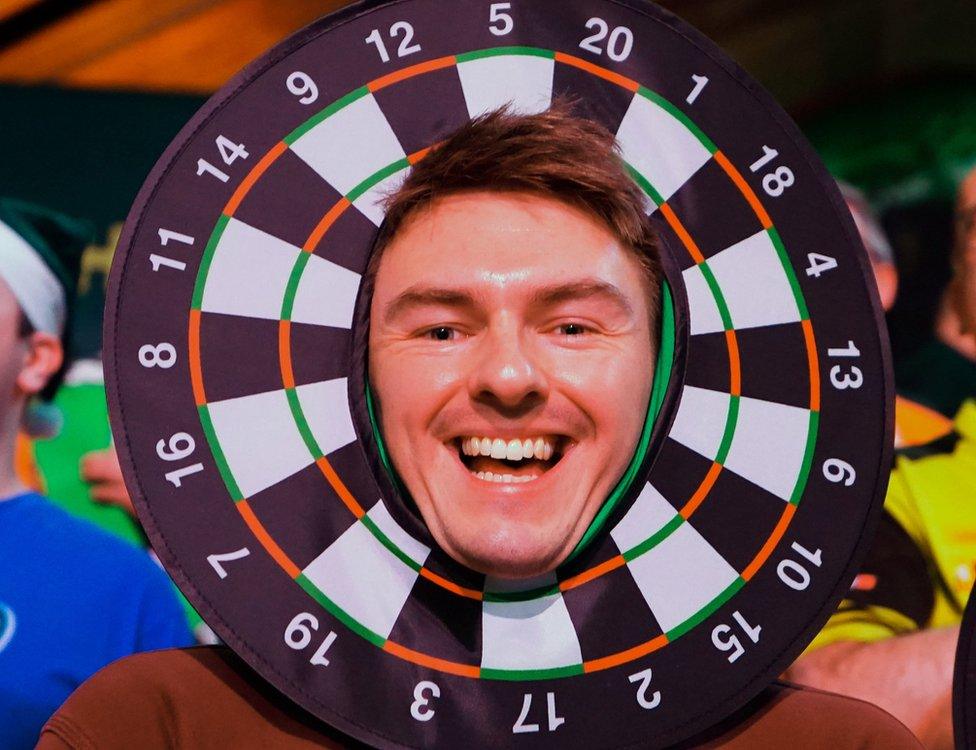
A fan at Alexandra Palace wears a (not exactly regulation) dartboard
You can score more though if you hit the skinny rings that run through all the segments.
Hitting the "outer ring" that runs on the edge of the board gets you double the usual points for that section.
If you hit the "inner ring" around halfway around the board, you score treble the usual.
Finally, there's the "bullseye" at the centre of the board, which scores 50 points, and the "outer-bull" just around that, which scores 25.
This all means the highest scoring part of the board is not actually the bullseye at the centre, but the treble 20.
"They're the ones you'll see the professionals will go for all the time because effectively they will get you down to a double the quickest," Ollie, from Norfolk, says.
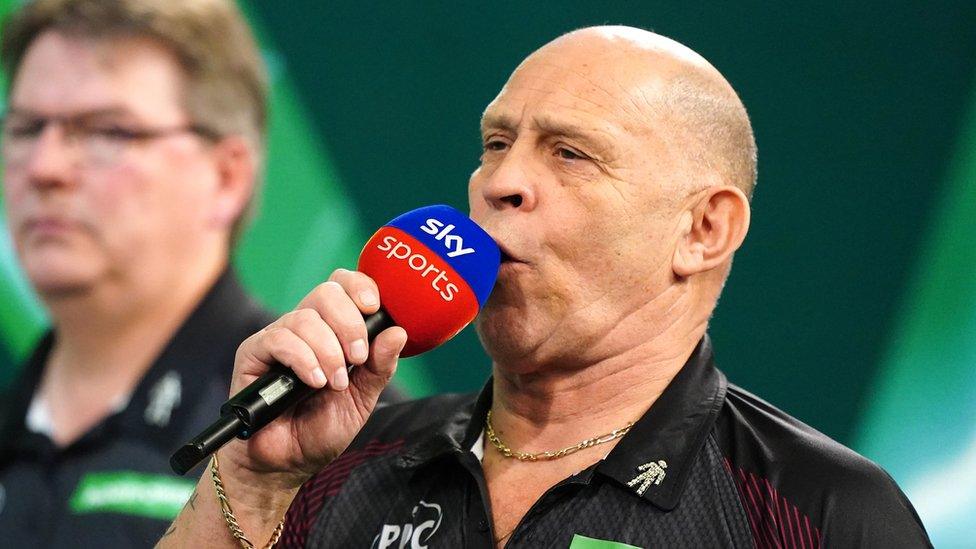
A famous "one-hundred-and-eighty" call
And three treble 20s in a row gets you something else pretty special - the coveted 180 points. Get ready to join in with the cheers when this happens.
"It's become quite a big thing over the years due to the callers within darts," says Ollie.
The person who will be bellowing out the famous "one-hundred-and-eighty" tonight is darts legend and referee Russ Bray.
"Everybody loves it and everybody's singing and dancing," Russ tells Newsbeat.
What's a nine-darter?
You might hear commentators get very excited about the prospect of a nine-darter. This is the fewest number of darts you can throw and still get 501 points exactly.
The most common combination is to go for two scores of 180, followed by a treble 20, treble 19 and double 12 to score the remaining 141. Lots of maths.
They're very rare though, so if one happens during the final expect the crowd to go wild.
Another loud cheer will come when a player hits a big finish at the most crucial time of a game - known as a champagne finish.
Ollie feels it's great for the sport so many people could be tuning in for the first time tonight.
"There's going to be drama and I think you'll come away hooked and wanting to be involved with the sport," he says.
The World Darts Championship final takes place tonight at Alexandra Palace in London.


Follow Newsbeat on Twitter, external and YouTube, external.
Listen to Newsbeat live at 12:45 and 17:45 weekdays - or listen back here.
Related topics
- Attribution
- Published3 January 2024

- Published2 January 2024

- Attribution
- Published4 January 2024
